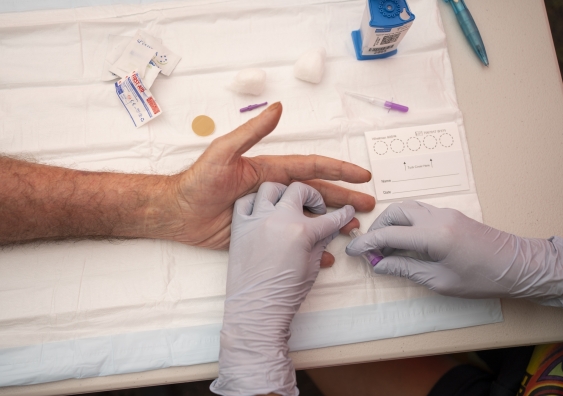Barriers to a cure: study reveals global obstacles to getting hep C treatment
2024-02-15T10:30:00+11:00

Photo: Adobe Stock
Access to curative hepatitis C treatments depends on where you live, new research shows.
Almost 90 per cent of the 57 million people living with hepatitis C live in low- and middle-income countries, but only half of these countries currently provide curative treatments at an accessible cost, says a study by UNSW Sydney’s Kirby Institute.
The finding is part of an analysis published in Lancet Gastroenterology & Hepatology which has examined the registration, reimbursement and restrictions for hepatitis C treatments across 160 countries globally. These countries represent approximately 95 per cent of the global population.
“Current direct-acting antiviral treatments cure hepatitis C in more than 95 per cent of people, revolutionising the way we manage this condition. But there remains a high cost to the treatment in most countries, which has led to a disparate rollout globally, with many countries placing restrictions both on who can access it and who can prescribe it,” says Dr Alison Marshall, who led the research at the Kirby Institute.
“Universal access to health coverage means all people should have access to the full range of quality services they need – irrespective of who they are, where they are born, or the nature of their health condition.”
According to the research, of the 160 countries analysed, 91 per cent have at least one hepatitis C treatment registered, but only two thirds of countries provide their residents with access to reimbursed (subsidised) treatment. Among low- and middle-income countries, just over half provide reimbursement. Seven countries restrict access based on drug use and five based on alcohol use.
“Given that the majority of people living with hepatitis C live in low- and middle-income countries, we need to see much higher numbers of countries providing reimbursement for hepatitis C therapies, especially if we are to meet the World Health Organization target to eliminate hepatitis C as a public health threat by 2030,” says Dr Marshall.
“Most people living with hepatitis C globally are marginalised and face multiple challenges to accessing care. If cost is a barrier to seeking cure, they are unlikely to seek treatment, which poses risks for their health, as well as for onward transmission.”
Specialist appointments
Another barrier to accessing curative treatment is who can prescribe the medications. The analysis found that in 61 per cent of countries, a specialist (e.g., a liver disease specialist or infectious disease specialist) was required to prescribe the medication. This restriction reduces the proportion of available prescribers and most often requires patients to receive treatment from a specialist centre, often hospital-based.
“This is a major barrier for marginalised population groups such as people who use or inject drugs – people who are more likely to experience stigma in healthcare settings and avoid attending hospital-based centres. Increasing task sharing of hepatitis C testing and treatment to non-specialised centres such as primary care centres would broaden access,” says Professor Jason Grebely, who is senior author on the paper.
The researchers conclude that there is a need for more innovative financing models to encourage and facilitate increased access to treatment, especially in low- and middle-income countries.
“There have been some great initiatives, such as the Clinton Health Access Initiative, and The Hepatitis Fund who have helped to facilitate price agreements with generic manufacturers to provide treatments to low- and middle-income countries for $US60 per treatment course, but we need to do more to assist countries to increase access to these lifesaving treatments,” says Prof. Grebely.
CEO at the World Hepatitis Alliance, Rachel Halford, says the research is both alarming and timely.
“We hope this research will motivate action from policymakers and healthcare professionals globally, as the urgency to tackle hepatitis cannot be overemphasised.
“Eliminating viral hepatitis will prevent hundreds of thousands of lives lost to liver cancer and other liver diseases resulting from chronic hepatitis. As a global hepatitis community, we must collaborate to drive change. We commend the Kirby Institute’s contribution to this global collaboration with this research.”
Media enquiries
Lucienne Bamford, Communications and Engagement Manager
Tel: +61 432 894 029
Email: Lbamford@kirby.unsw.edu.au







